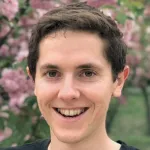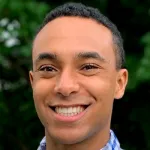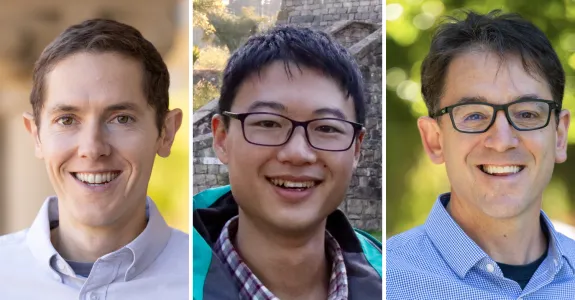
Dr. Grant Rotskoff's research focuses on theoretical and computational approaches to "mesoscale" biophysics. Many of the cellular phenomena that we consider the hallmarks of living systems occur at the scale of hundreds or thousands of proteins. Processes like the self-assembly of organelle-sized structures, the dynamics of cell division, and the transduction of signals from the environment to the machinery of the cell are not macroscopic phenomena—they are the result of a fluctuating, nonequilibrium dynamics.
Experimentally probing mesoscale systems remains extremely difficult, though it is continuing to benefit from advances in cryo-electron microscopy and super resolution imaging, among many other techniques. Predictive and explanatory models that resolve the essential physics at these intermediate scales have the power to both aid and enrich the understanding we are presently deriving from these experimental developments.
Major parts of Dr. Rotskoff's research include:
- Dynamics of mesoscale biophysical assembly and response — Biophysical processes involve chemical gradients and time-dependent external signals. These inherently nonequilibrium stimuli drive supermolecular organization within the cell. Dr. Rotskoff's group develops models of active assembly processes and protein membrane interactions as a foundation for the broad goal of characterizing the properties of nonequilibrium biomaterials.
- Machine learning and dimensionality reduction for physical models — Machine learning techniques are rapidly becoming a central statistical tool in all domains of scientific research. Dr. Rotskoff's group applies machine learning techniques to sampling problems that arise in computational chemistry and develops approaches for systematically coarse-graining physical models. Recently, they have also been exploring reinforcement learning in the context of nonequilibrium control problems.
- Methods for nonequilibrium simulation, optimization, and control — There is a lack of well-established theoretical frameworks for describing nonequilibrium states, even seemingly simple situations in which there are chemical or thermal gradients. Additionally, there are limited tools for predicting the response of nonequilibrium systems to external perturbations, even when the perturbations are small. Both of these problems pose key technical challenges for a theory of active biomaterials. The Rotskoff group works on optimal control, nonequilibrium statistical mechanics, and simulation methodology, with a particular interest in developing techniques for importance sampling configurations from nonequilibrium ensembles.



